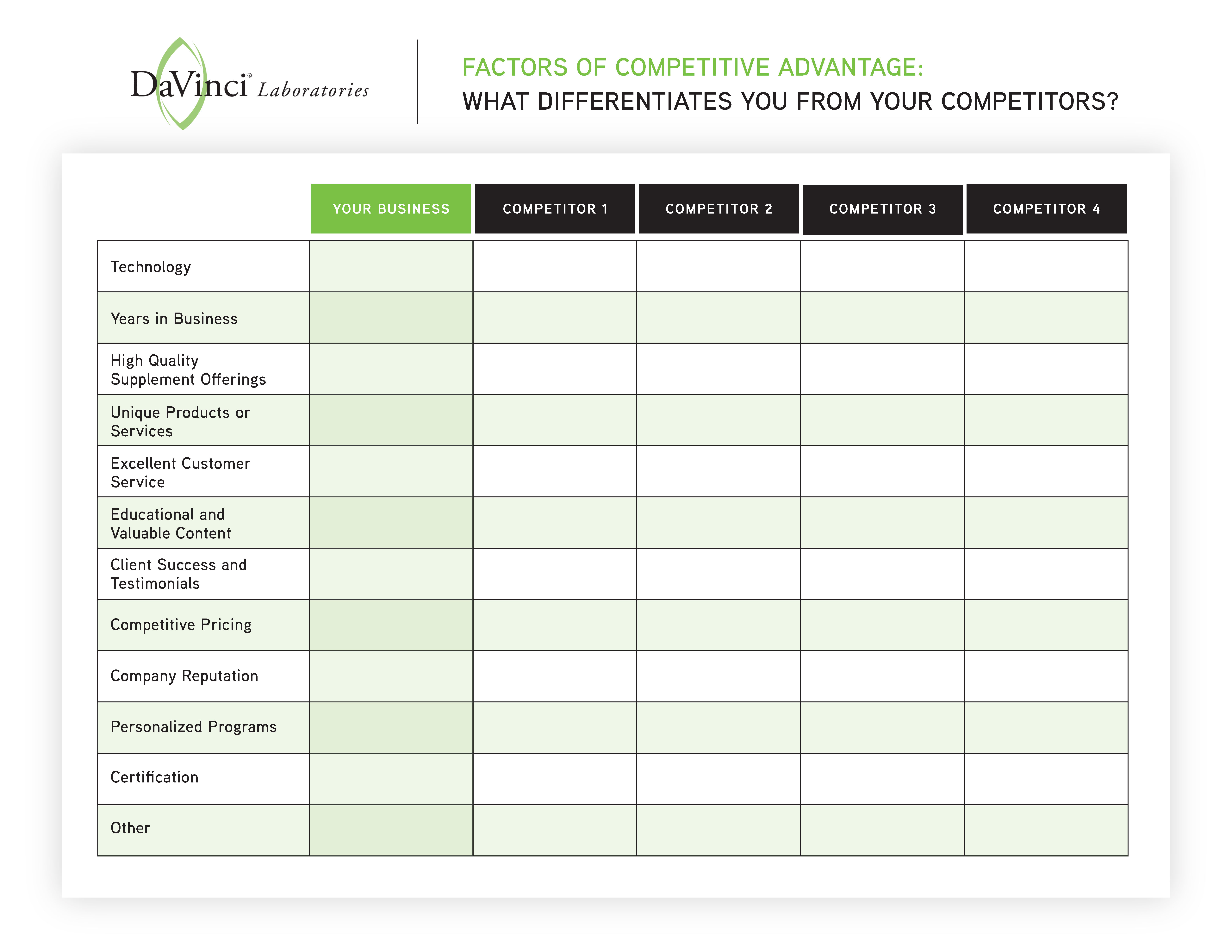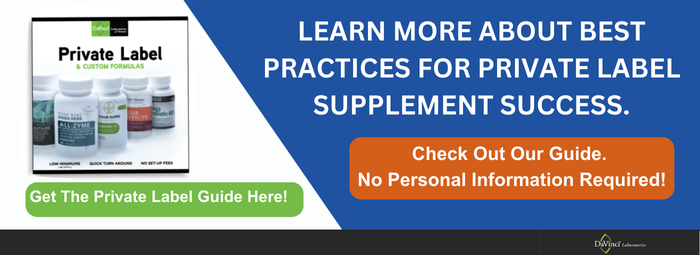
Many entrepreneurs in the health and wellness industry have established their own private label supplement businesses. With enormous potential for success, it’s long past time for you to get a piece of the action.
Whether you’ve already started offering private label products to your customers or clients, or the whole private label concept is new to you, we can help. With our tips for success, you can scale your business and boost your bottom line with private label supplements.
Can Your Business Grow with Private Label Supplements?
Scaling your business means increasing revenue at a faster rate than operating costs. By offering your own line of unique and desirable supplements, you can build customer loyalty, get safe and effective products into the hands of people who need them, and add an innovative revenue stream to your business.
If your business is in health or wellness, it’s easy to see how offering your own brand of dietary supplements can appeal to your clients and profits. With a little creative thinking, an entrepreneur in any field can benefit by joining the $151 billion global supplement market.

To see if private label supplements might help you scale your business, read our definitive guide and consider these three key factors:
- Customer demand. Do you have an existing customer base? Doctors have patients in need, estheticians have loyal clients, and fitness apps have thousands of subscribers. These potential buyers are just waiting to be told what supplements are right for boosting immune function or increasing skin elasticity. If they’re already asking for your recommendations, offering your own line of private label supplements is a great way to ensure they find a high-quality product that also increases your income.
- Personal branding. Part of launching your own line of private label supplements is to create the labels. A reputable, high-quality supplier will help you design your logo, develop your specific formulations, and launch your marketing campaign. Partnering with a trusted supplier also helps to ensure that your labels, branding, and marketing materials aren’t just concise, recognizable, and trustworthy, but also comply with all relevant regulations.
- Profit margins. Before launching your first private label supplements, make sure you do your research. Know your ideal customers, their needs, and what they’re likely to pay to address those needs. The higher their trust in you, your business, and your products, the more they will be willing to pay. To find that sweet spot, make sure to shop around and see what your competitors are charging for comparable products. Minimize financial risk by partnering with a qualified supplier that allows small minimum orders and low upfront costs.
If you’re still not sure whether private label supplements are right for your business, connect with our private label specialist to discuss your concerns.
5 Ways to Scale Your Business with Private Label Supplements
- Think outside the box. Private label supplements are an obvious addition to a medical or wellness organization’s business model, but many other industries are perfectly suited for this revenue stream, too. Customers at your beauty salon or day spa may want your recommendations for a vitamin A or collagen supplement. People on dating apps may want libido support supplements based on their lifestyle profiles. Busy moms on a parenting website may want the best formulations for stress relief and restful sleep.
- Develop new products. Your customers are already in the marketplace buying supplements. If they aren’t able to get everything they need from your offerings, it’s time to expand your product line. Email your contact list with questions like “What are top 3 supplements you’ve researched or bought in the past year” to survey interest. If they express frustration in finding formulations specific to their concerns, take the opportunity to offer something unique. The beauty of growing your business with private label supplements is that you can work with a trusted manufacturer to create your own formulations that work best with your brand and customer base.
- Assess your competition. Are local competitors offering similar products? Are your clients currently buying comparable supplements online? Assess how you can offer better products and services by following the customer through their wellness journey—beyond the use of just one supplement. Create marketing email campaigns that reach a customer who bought an acne clearing supplement last month. Maybe they’re ready for a vitamin-rich everyday skin cream and will want a hair, skin, and nails supplement next month. By doing your market research and launching the right products at the right price point, you can speed ahead of the competition and enjoy rapid growth.
If you need help with this step, check out the Competitor Comparison Chart we made below. Feel free to download it for your own use!


- Expand your market…and your marketing. If you’ve only been selling private label supplements in your brick-and-mortar storefront location, this is your sign to start selling them online, too. Direct your local clients to your social media account and website with a scannable QR code sign at the front desk, which sets them up to see your online marketing and easily make online purchases. As you build brand awareness, consider offering your private label supplements for sale inside other local business offices in a related industry, such as the neighborhood health food market.
- Build a strong relationship with a trusted supplier. The right partner can simplify the process of developing, launching, and scaling your private label supplement business. From creating an eye-catching logo to double checking regulatory governance, a high-quality manufacturer will do a lot more than bottle up basic formulations. The right supplier will be your partner from start to finish, lending insights on quality ingredients and offering tips on compliant marketing along the way.
Takeaway: Differentiate Your Brand with Private Label Supplements
If your clients are asking about supplements, ordering them online, or sharing their unique needs with you, offering private label supplements is a win-win for everyone.
The key to scaling is increasing revenue without increasing costs. While generalized “growth” in business can be slow and steady, scaling signifies a streamlining of processes and product offerings that noticeably and rapidly generates income without adding much more work.
Establishing an effective business model for a supplement revenue stream, then scaling that operation efficiently, will lead to rapid growth for your business. Be sure to do your market research and partner with a high-quality, proven supplier to create your private label supplements.















.jpg)




